“A woman is the pillar of a nation. If she is upright, the nation stands firm. But if she falters, the nation crumbles.”
This is not merely a saying, it’s a truth that history continues to affirm. Islam, from the very beginning, has emphasized the critical role women play in shaping not only the direction of life but also the course of entire civilizations.
Dr. Nur Hamidah, Lc., M.Ag., a lecturer and activist, underscores that women hold a decisive position in determining the future of a nation. This influence is not confined to the domestic sphere, it extends to the grand narratives of human history, both in building civilizations and in witnessing their decline.
The Quran presents many examples of women who played pivotal roles in shaping historical outcomes. One such figure is Asiyah, the wife of Pharaoh. Despite living under the tyranny of one of the most ruthless rulers in history, she remained steadfast in her faith. Her ultimate desire was not just to escape her oppressive surroundings, but to be granted a home in Paradise near her Lord.
Also Read: India and Pakistan: Military Powers with Nuclear Capabilities
Her heartfelt prayer is immortalized in the Qur’an:
رَبِّ ٱبْنِ لِى عِندَكَ بَيْتًۭا فِى ٱلْجَنَّةِ وَنَجِّنِى مِن فِرْعَوْنَ وَعَمَلِهِۦ وَنَجِّنِى مِنَ ٱلْقَوْمِ ٱلظَّـٰلِمِينَ
“My Lord, build for me near You a house in Paradise and save me from Pharaoh and his deeds and save me from the wrongdoing people.” (Qur’an, At-Tahrim: 11)
Because of her unwavering faith, the Prophet Muhammad (peace be upon him) named Asiyah among the four greatest women in history, alongside Maryam (Mary), Khadijah, and Fatimah. These women exemplify strength and excellence, even in the face of extreme adversity.
Also Read: Hajj: A Strategic Pathway Toward Indonesia’s Golden Vision 2045
The Prophet said: “Many men have attained perfection, but among women, none attained it except Maryam bint ‘Imran and Asiyah, the wife of Pharaoh…” (Hadith, Bukhari No. 3411)
On the contrary, the Quran also narrates the downfall of women who chose to oppose truth. The wives of Prophets Nuh (Noah) and Lut (Lot) lived alongside righteous men but failed to support their missions. Instead, they betrayed them and ultimately faced destruction.
ضَرَبَ ٱللَّهُ مَثَلًۭا لِّلَّذِينَ كَفَرُوا۟ ٱمْرَأَتَ نُوحٍۢ وَٱمْرَأَتَ لُوطٍۢ ۖ كَانَتَا تَحْتَ عَبْدَيْنِ مِنْ عِبَادِنَا صَـٰلِحَيْنِ فَخَانَتَاهُمَا فَلَمْ يُغْنِيَا عَنْهُمَا مِنَ ٱللَّهِ شَيْـًۭٔا وَقِيلَ ٱدْخُلَا ٱلنَّارَ مَعَ ٱلدَّٰخِلِينَ
“Allah sets forth an example for the disbelievers: the wife of Nuh and the wife of Lut. They were married to two of Our righteous servants, but they betrayed them, So their husbands were of no benefit to them against Allah whatsoever. Both were told, “Enter the Fire, along with the others!” (Qur’an, At-Tahrim: 10)
Also Read: More Than Just a Piece of Paper: The History and Controversy of Educational Certificates
Similarly, the wife of Abu Lahab is portrayed in the Qur’an as a spreader of slander, a partner in opposition to the Prophet Muhammad’s mission. Her actions, alongside her husband’s, were so destructive that their story became a lasting warning.
“And his wife, the carrier of firewood. Around her neck is a rope of palm fiber.” (Qur’an, Al-Lahab: 4–5)
These examples highlight a powerful truth: women are not secondary actors in society, they are key drivers of its direction, whether toward growth or decline. A righteous woman can uplift her home, community, and nation. But if misguided, the damage can ripple far and wide.
Dr. Nur Hamidah also reflects on the Quranic terminology for women. In Arabic, the words al-mar’ah and an-nisā’ both mean “woman,” but carry different nuances. Al-mar’ah typically refers to a woman in the context of family and household, while an-nisā’ is broader, often linked to societal roles.
Interestingly, when describing women as builders of civilization, the Quran uses al-mar’ah, subtly indicating that lasting civilizations begin at home, through a woman’s role as a mother, wife, and the first teacher of future generations.
The often-criticized phrase “the kitchen, the well, and the bed” once symbolized limitations placed on women. But in truth, these domains represent vital areas of leadership within the household. Managing family needs, upholding dignity, nurturing children, and cultivating a peaceful home are powerful forms of influence.
A woman who builds a strong, faithful, and loving home lays the foundation for a better society.
The Prophet Muhammad (peace be upon him) said:
Also Read: Global Boycott: Major Financial Losses for Companies Affiliated with Zionist Israel
كُلُّكُمْ رَاعٍ وَكُلُّكُمْ مَسْئُولٌ عَنْ رَعِيَّتِهِ… وَالْمَرْأَةُ رَاعِيَةٌ فِي بَيْتِ زَوْجِهَا، وَهِيَ مَسْؤُولَةٌ عَنْ رَعِيَّتِهَا
“Each of you is a shepherd, and each of you is responsible for his flock… A woman is the shepherd of her husband’s household and is responsible for it.” (Hadith, Bukhari and Muslim)
This affirms that a woman’s role within the home is far from insignificant. In fact, it is within the home that civilizations are shaped. Children who grow into people of character, husbands who find peace and strength to contribute to society, and communities built on compassion, all originate from a solid household led by a strong woman.
A truly impactful woman does not need to seek greatness outside the home, it often begins within it, through small, sincere acts that form the core of something far greater. After all, resilient civilizations are born from resilient homes, and resilient homes are built by strong, visionary women. []
Also Read: Jewish Hostility Extends to All of Mankind
Mi’raj News Agency (MINA)





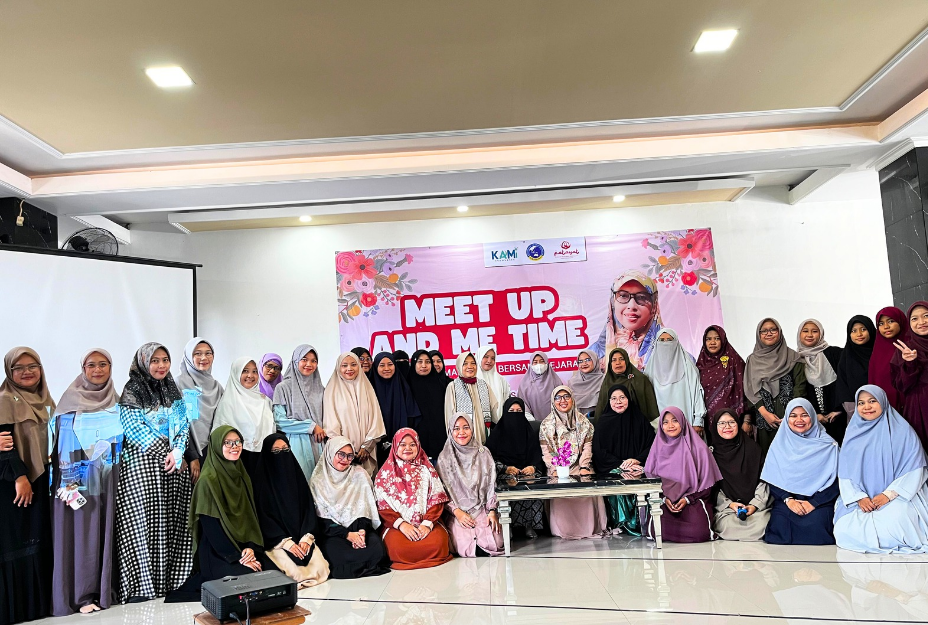















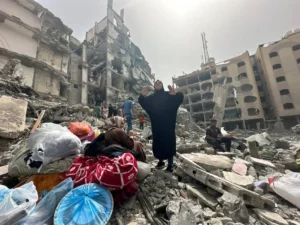
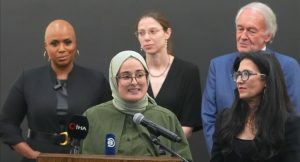
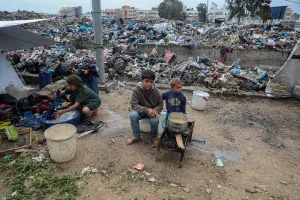
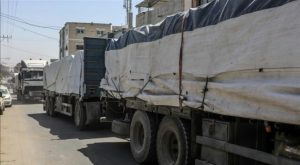






 Mina Indonesia
Mina Indonesia Mina Arabic
Mina Arabic